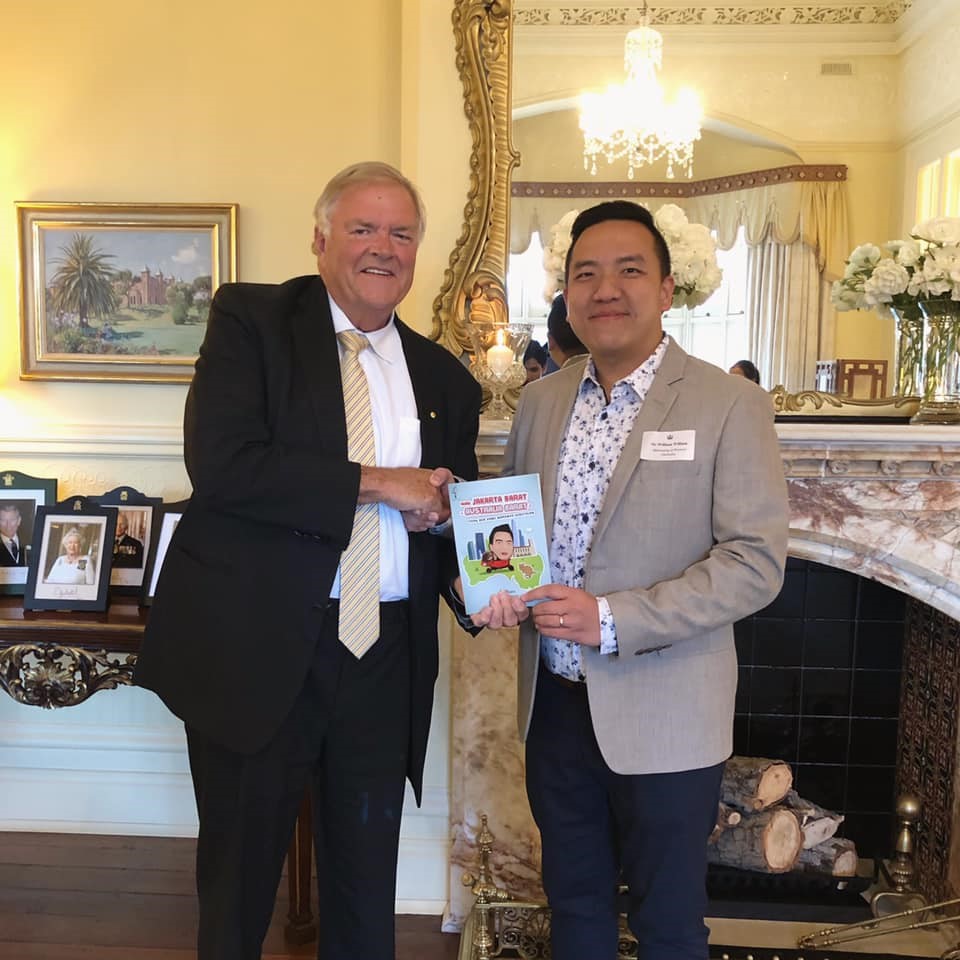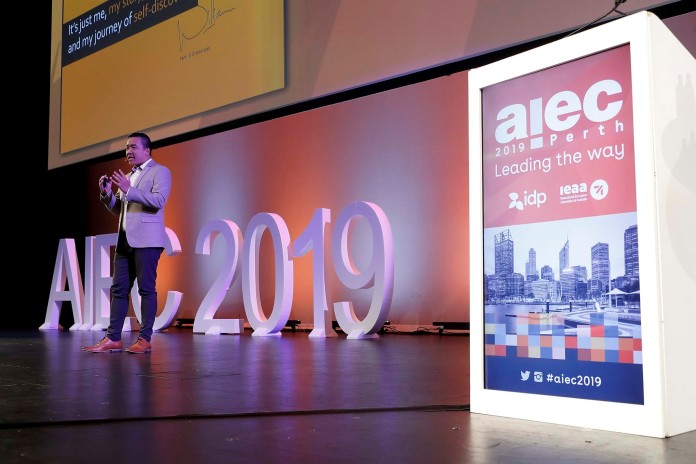William had just obtained a Master of Strategic Communication degree from The University of Western Australia (UWA) with the full scholarship from the Indonesian Endowment Fund for Education (LPDP). In this article, William shares some essential takeaways from his learning endeavour, which will be useful for future Indonesian students who would like to pursue higher degree overseas.
***
Hi, my dear friends! I am William, originally from Jakarta, Indonesia, and just obtained a Master of Strategic Communication degree from The University of Western Australia (UWA), Perth, with the full scholarship from LPDP (PK-103). In public speaking, I know the “Rule of Three”. In photography, I know the “Rule of Thirds”. Therefore, in this article I’m going to share three lessons I personally learned from my learning experience in Western Australia.
a. Racism (or ethnocentrism) only exists in our mind
During two years of my master study, I went back to Jakarta for four times. Of course, whenever possible, I made time to meet my old friends and colleagues to share our life stories. It was quite often for them to ask whether I have gone through discriminatory or appalling treatment from Australians and/or international communities in Perth. Honestly, I was a bit shocked because the thought about racism never crossed my mind.
I understand that the so-called “Western versus Eastern” or “Asian versus non-Asian” dichotomy is a common thing. In my perspective, living with prejudice and excessive scepticism towards people from different cultural backgrounds is inconvenient. I do not know what others think about me or whether others have a prejudice against my cultural background. What I know is I can try my best to be kind to everyone, treat every person I meet and work with equally and respectfully, and never associate what people do with their nationalities or ethnics. Just because someone was born and raised in Australia does not automatically make them lazier than their Asian counterparts. Alternatively, just because someone is originally from Indonesia does not make them less open-minded than people from other corners of the world.
When I was given a chance to work as an Academic Tutor at UWA Business School, I was responsible for teaching almost 40 students. Half of them are Australians, and the rest are from Southeast Asia, East Asia, and the Middle East. None of them comes from Indonesia. This role was really enriching because I got many chances to practice and improve my cultural intelligence. It also happened to my students. Together, we shared a lot of exciting things from our home countries. We had a nice and proper conversation, and by the way, we are still friends. We did not allow and tolerate offensive comments or judgmental words in our class, and I think this small yet kind gesture is essential in cross-cultural friendships.

b. Making friends? Take it slowly
Well, I think we must admit that we generally have no idea about the background of someone whom we just met. It is totally okay, and I think we are not playing detective, who is assigned to investigate someone’s background. So, to begin this section, I would like to underline the importance of taking things slowly when we meet new people and make new friends in Australia.
Australians are different from Indonesians in terms of the degree of openness when they talk about their family, career, aspiration, and other personal matters. Chinese, Indian, Ghanaian, European, and American are also different from Indonesians when they share their emotion. Based on my experience, things like family background, religion/belief, sexual orientation, marriage, and personal income are some of the things that people do not instantly want to share to new people they meet. With that saying, let us refrain from asking personal questions about those things. Like romantic relationships, good friendships need time to grow. The bottom line is, rather than “investigating” someone’s background in the first meeting, it is more productive to start with more general topics like hobbies, sports, cool things to do in the city, famous restaurant, favourite foods, or tips and tricks in university study (if you meet other students).
c. Use your social media as a medium of “Dakwah”
As a scholarship recipient, some people think that posting good things on social media is improper and insensitive.
“Your scholarship provider or your government does not spend their money to see you having fun. They want you to study hard,” that is what people commonly say.
When I was in Perth, I tried my best to engage with local communities and activities while expanding my circle of friends internationally. I grabbed opportunities when they were close. I went out of my comfort zone and learned how things work in Australia. When I was confused, I asked questions to my lecturers and mentors. My lecturers and mentors were also happy to inform me about potential out-of-campus opportunities. I thanked them for supporting me to take roles as UWA UniBuddy Student Ambassador, StudyPerth International Student Ambassador, Academic Tutor at UWA Business School, and Media, Publication, and Documentation Coordinator at the Association of Indonesian Postgraduate Students and Scholars in Australia. I also had time to write a book about my life journey in Perth (Anak Jakarta Barat di Australia Barat: Tidak Ada yang Namanya Kebetulan, Yayasan Pustaka Obor Indonesia, 2019) and co-write another book (Bertahan dalam Hujan untuk Pelangi: Dari Australia Barat untuk Indonesia, Yayasan Pustaka Obor Indonesia, 2019) about lessons learned from Western Australia.

I posted all of the activities on my Facebook, Instagram, and LinkedIn. Not to show off or to say that my life is better than others, I did it to show my gratefulness for all the good things that happened to my life. By sharing positive and inspiring contents (Dakwah) on my social media platforms, I was even contacted by UWA to be the Plenary Speaker in the 33rd Australian International Education Conference (AIEC) in October 2019. I was given 25 minutes to represent international students to speak on the main stage. I was very honoured to share the same stage with The Hon Kim Beazley (Governor of Western Australia), The Hon Mark McGowan (Premier of Western Australia), The Hon Sue Ellery (WA Minister for Education and Training), and The Hon Julie Bishop (former Federal Minister for Foreign Affairs). That experience was surreal, and I thanked myself for using social media effectively and strategically.
How about the “study hard” part? Yes, I also managed to do it well. My final GPA was 6.5 on a 7.0 scale. Even better, my thesis supervisor asked me to come back to Perth because she is willing to be the promoter for my PhD study.
*Photo Source: William







